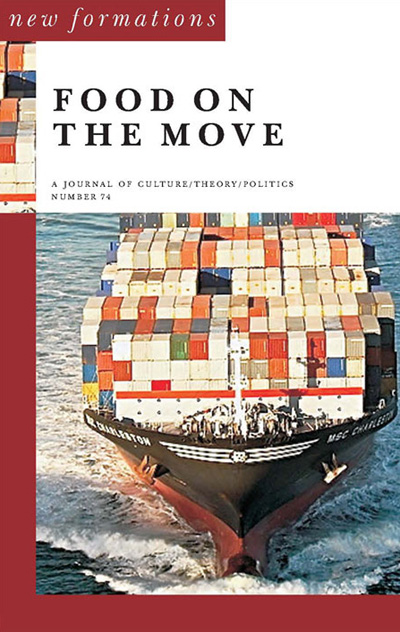
Migration, cuisine and integration: the Anglo-Jewish cookbook from the lady to the princess
New Formations - ISSN 0950-2378
Volume 2011 Number 74
Migration, cuisine and integration: the Anglo-Jewish cookbook from the lady to the princess
Panikos Panayi pages -
Abstract
Although cookbooks have become one of the most important of literary genres, relatively little attention has focused upon deconstructing their meaning. The vast numbers of cookbooks published allow us to identify a whole series of sub-genres. One of these consists of Anglo-Jewish cookbooks, whose origins date back to the middle of the nineteenth century. By analyzing the most important cookery books published by British women of Jewish origin over the past 160 years, this essay will demonstrate the way in which migrant cuisines are constructed by bringing together food practices in the land of origin and combining them with the eating norms of wider society in the land of settlement. The article also demonstrates the relationship between food and integration.
SORRY - you are not registered as being permitted online access to the full text of this article
You have the following options:
- If you are viewing this via an institution or academic library you can ask that your institution takes out a Subscription to this journal.
- If you already have a Personal Subscription please login below
Forgotten your username / password? Click here to locate
- Purchase an annual Personal Subscription
PRINT + DIGITAL personal subscription (£45 / year)
DIGITAL personal subscription (£30 / year)
A Personal Subscription provides immediate access not only to the single article you are seeking, but also to all past and future articles in this journal up to the expiry of your annual (calendar year) subscription. - Purchase immediate access to this single article (UK£7.00) - Buy article Coming Soon
To cite this article
Panikos Panayi (2011) Migration, cuisine and integration: the Anglo-Jewish cookbook from the lady to the princess, New Formations, 2011(74), -
